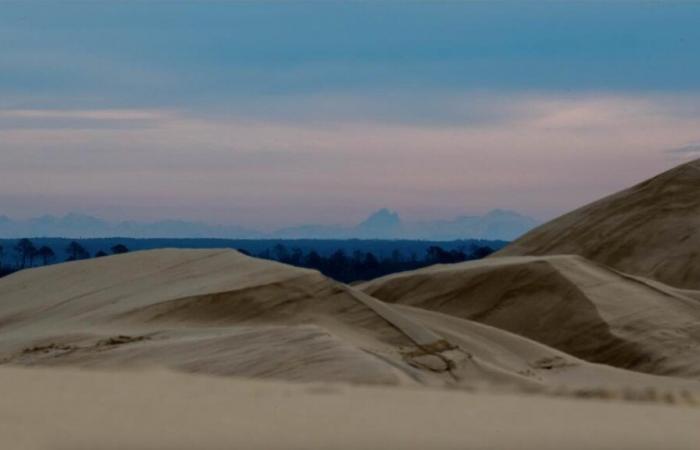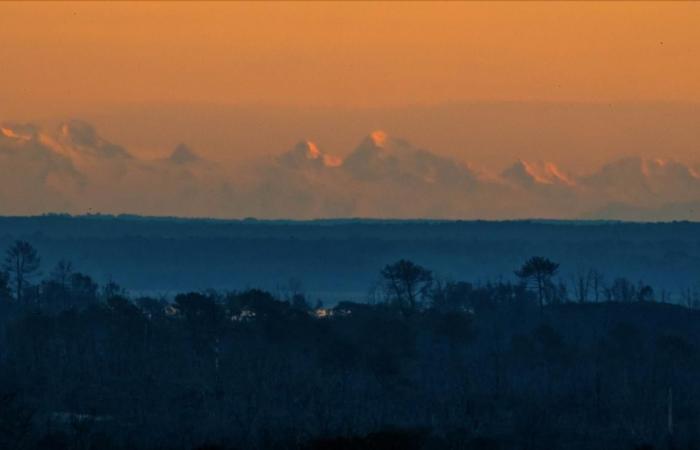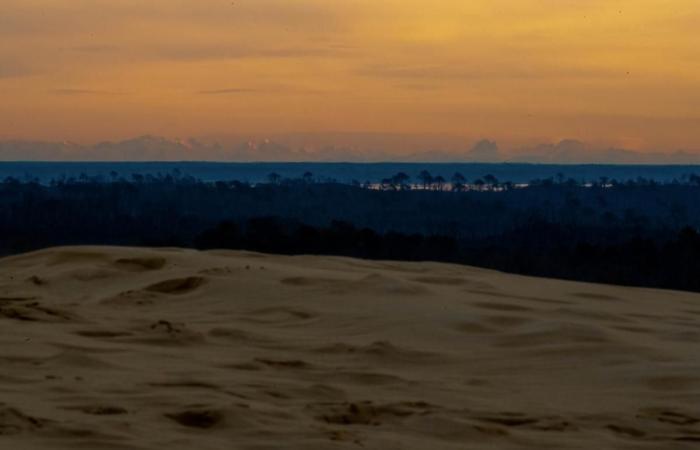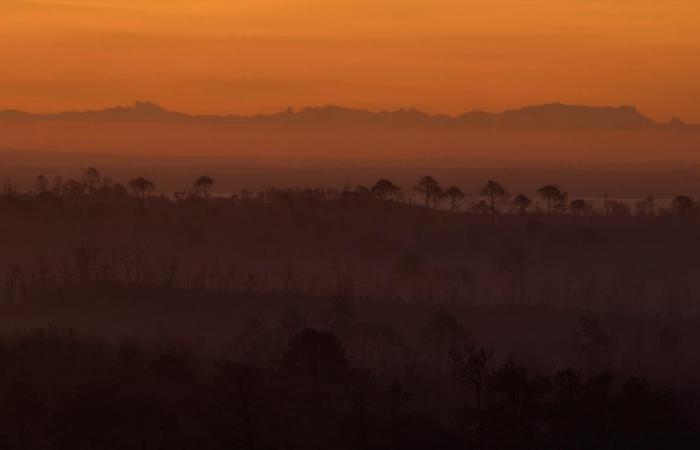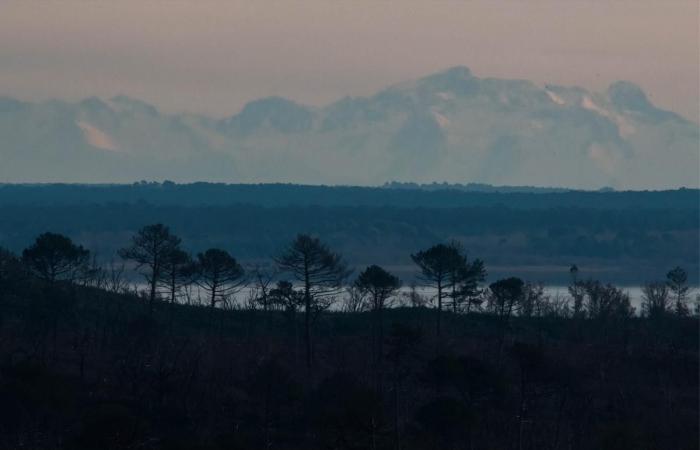Florian Clement
“After 20 observations of the now well-known phenomenon of the 'Pyrenees mirage', the mountain range appeared with remarkable clarity on December 17. Observable more than an hour before sunrise and until sunset. Although the phenomenon occurs fairly regularly, it is much rarer to be able to observe it in broad daylight. »
Florian Clement
The recently snow-capped peaks of the Pyrenees.
He identified the famous peaks more than 200 km away: the Arbizon, the Pic de Midi de Bigorre, the Pico de la Munia, the Ardiden, the Marboré, the Vignemale, the Pic Orhy…
Florian Clement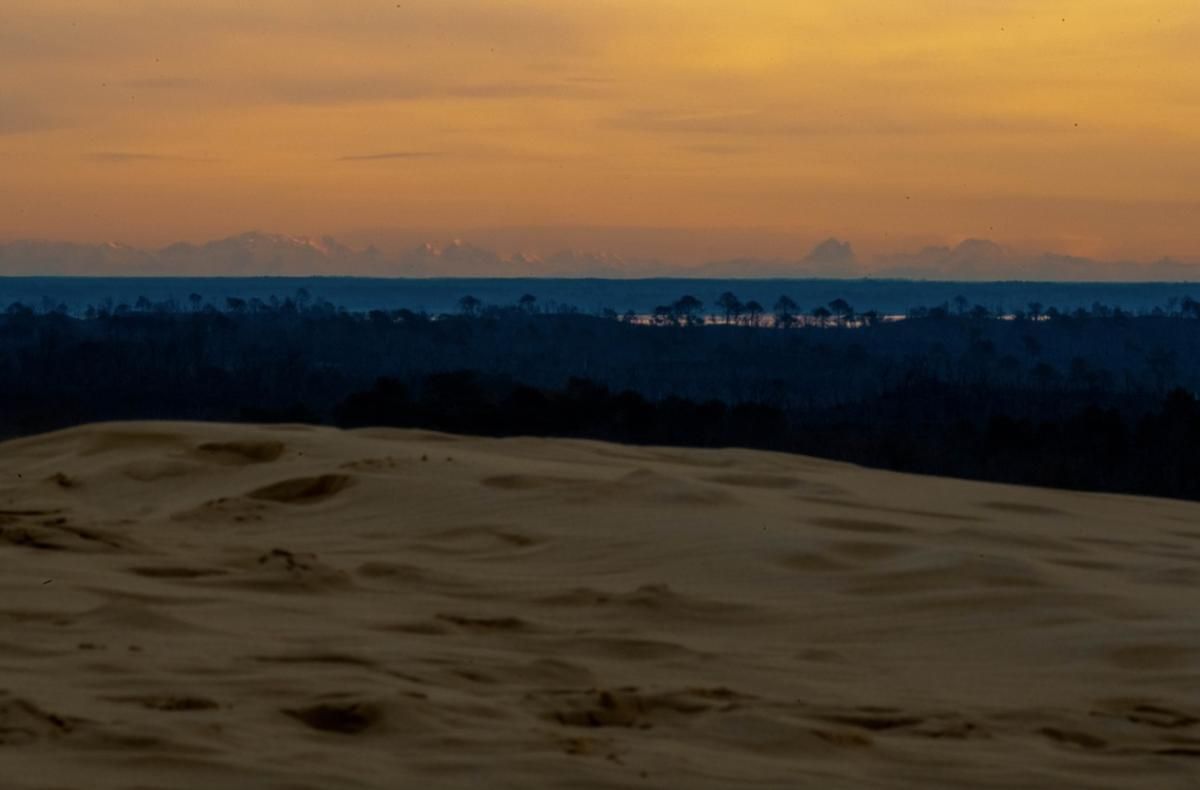
Optical illusions
These photos are optical illusions. An optical and thermal phenomenon of refraction well known to meteorologists. On a mathematical level, it is impossible to see the Pic du Midi d'Ossau from the 104 meter altitude of the highest sand dune in Europe.
Florian Clement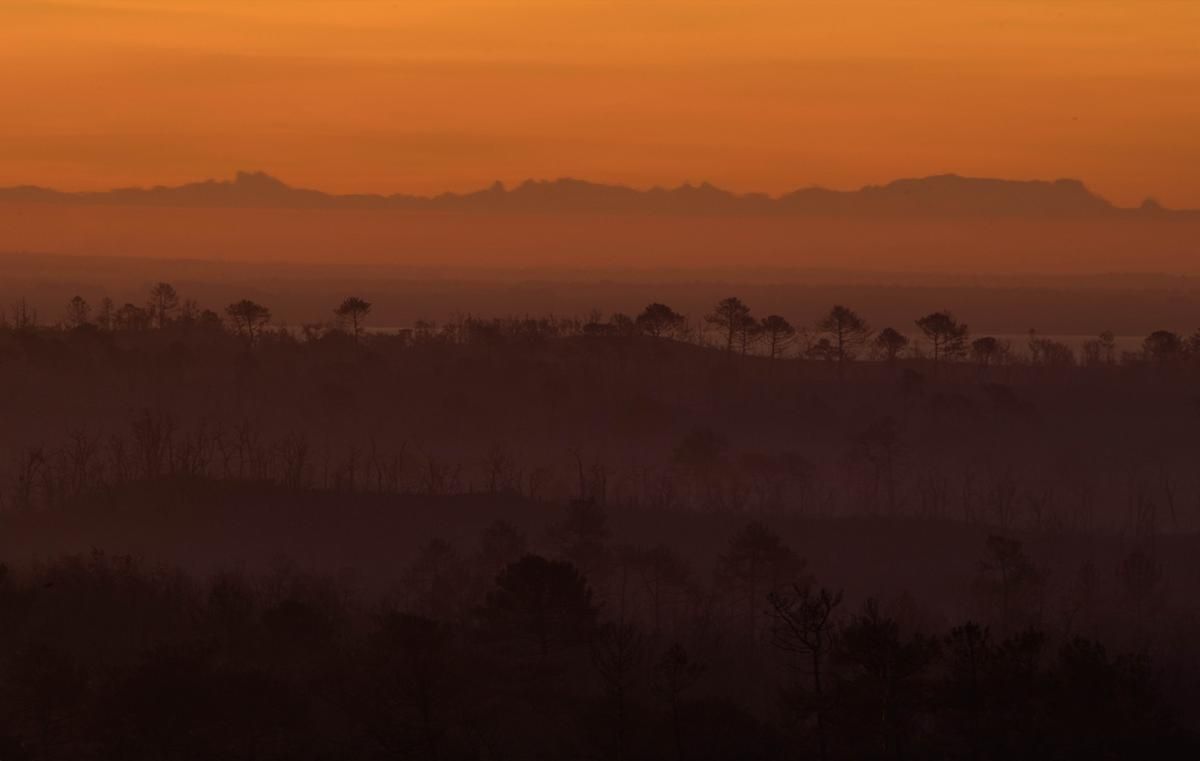
These images of the Pyrenees are not really the Pyrenees. It is a superior mirage, a curvature, a deviation of light rays which pass through layers of air. For this, several conditions are required: no clouds over a distance of more than 200 km as the crow flies, air on the ground colder than when one rises in the atmosphere, with a temperature variation of 10 degrees between 0 and 300 meters altitude. “A phenomenon still produced by spectacular thermal inversions. While it was up to -1.8°C in Pissos in the Landes, the mercury rose to more than 16°C at 616 m altitude in Larrau (64), 9°C in Iraty in 1427 m or almost 5°C at Lake Ardiden at 2445 m on the Météo France network,” specifies Florian Clément.
Florian Clement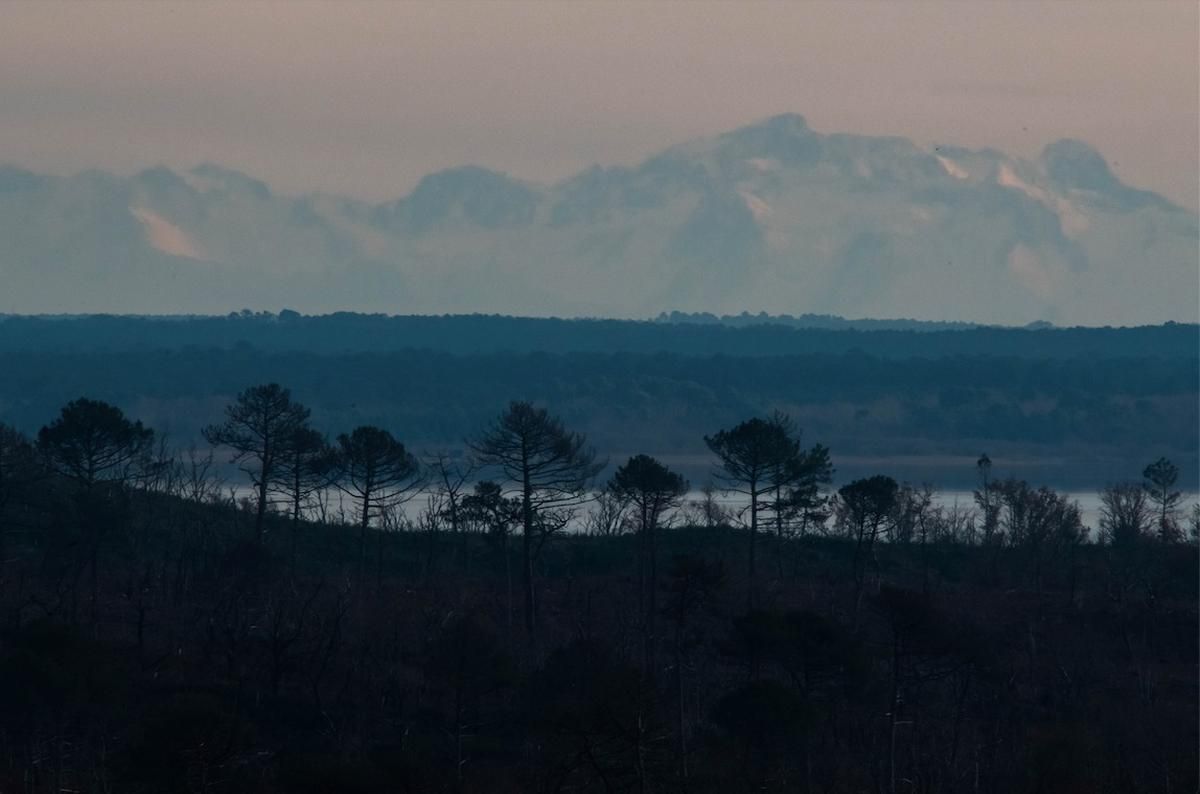
Art
France

